Valencia floods: "Only the people save the people"
In October, Spain endured Storm DANA, the worst natural disaster seen in Europe over the last five decades. Facing a political class that has not been up to the task, citizens have saved each other.
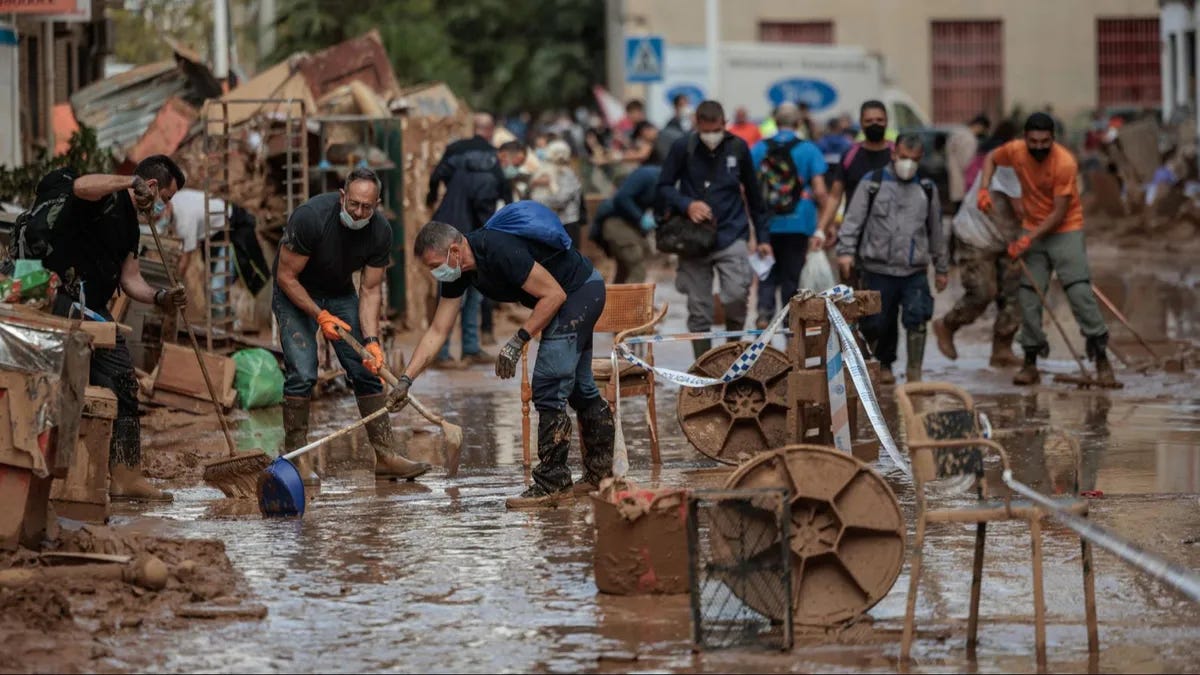
The aftermath of Spain's storm DANA on the 29th of October is as devastating as the storm itself: while mourning the lives lost, which now are over 200, thousands have to face a new reality.
In the worst affected towns, mud still covers streets, and tons of scrap pile up on the roads, yet to be removed. Towns like Chiva, in inner Valencia, were left without electricity, phone service, and running water for days. There is a severe lack of supplies: food, drinking water, and first aid products are scarce, and supermarkets are empty. There is an atmosphere of desperation, and more than 90 people have been reported missing.
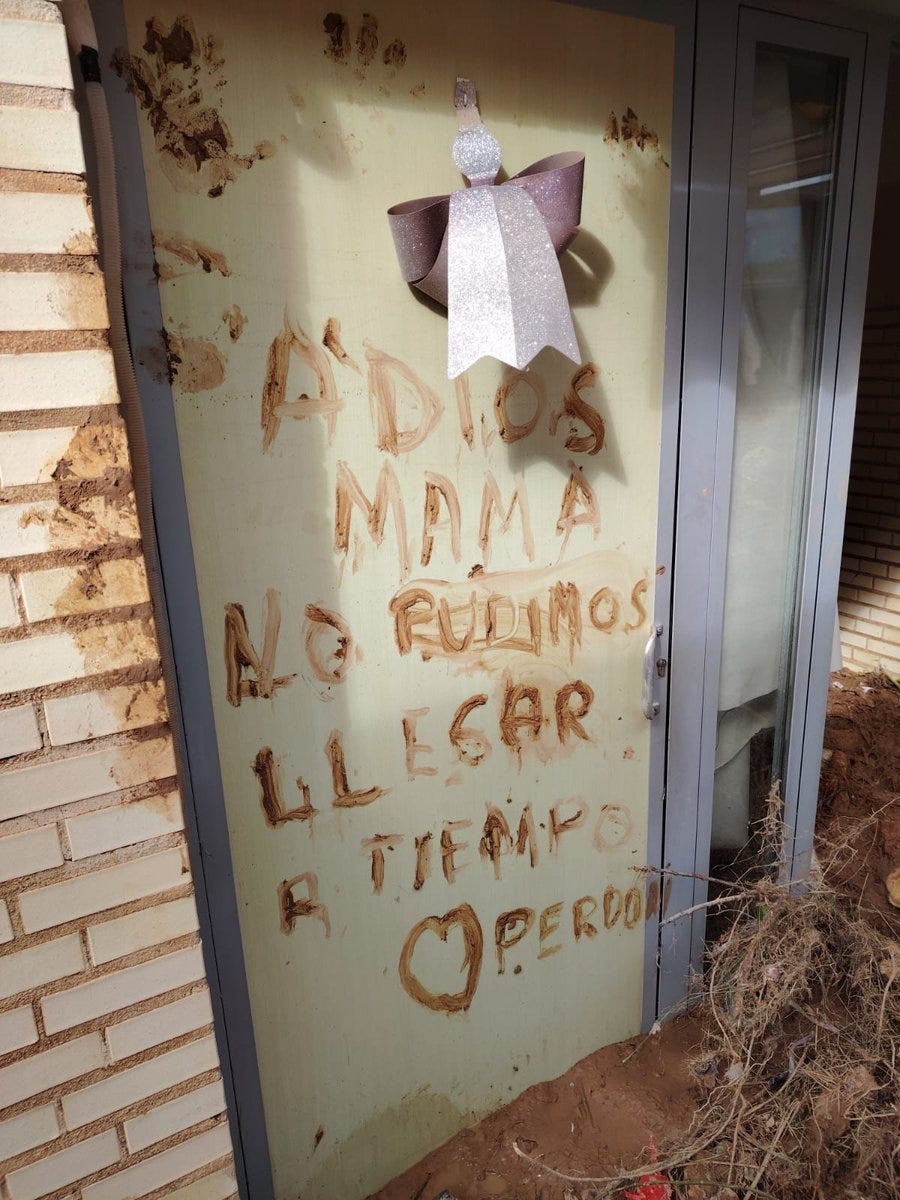
A political blame game
DANA has become a blame game and political parties are using the disaster as part of their political campaign. The left-wing parties point at the right and vice-versa, trying to find a culprit. The political class is in the spotlight, being accused by citizens of not living up to the expectations. They failed their people before the storm since alarms were sent to citizens’ phones when floods took place, catching everyone by surprise. Now, they carry on doing so during its aftermath.
Two names constantly appear in the headlines: Pedro Sánchez, Spain’s Prime Minister, and Carlos Manzón, president of the autonomic region of Valencia – representatives of the Socialist Party and the conservative People’s Party respectively, rival political parties.
Sánchez or Manzón?
Legally speaking, the central government in Madrid, ruled by Sánchez, must send resources to the affected regions in case of a catastrophe, but only if its regional government asks for this help. And it is here where Manzón failed. Valencia’s president did not ask the army for help until two days after the floods. What is more, it was not until four days after, on November the 2nd, that he requested the central government in Madrid to raise the number of military members from 500 to 5000.
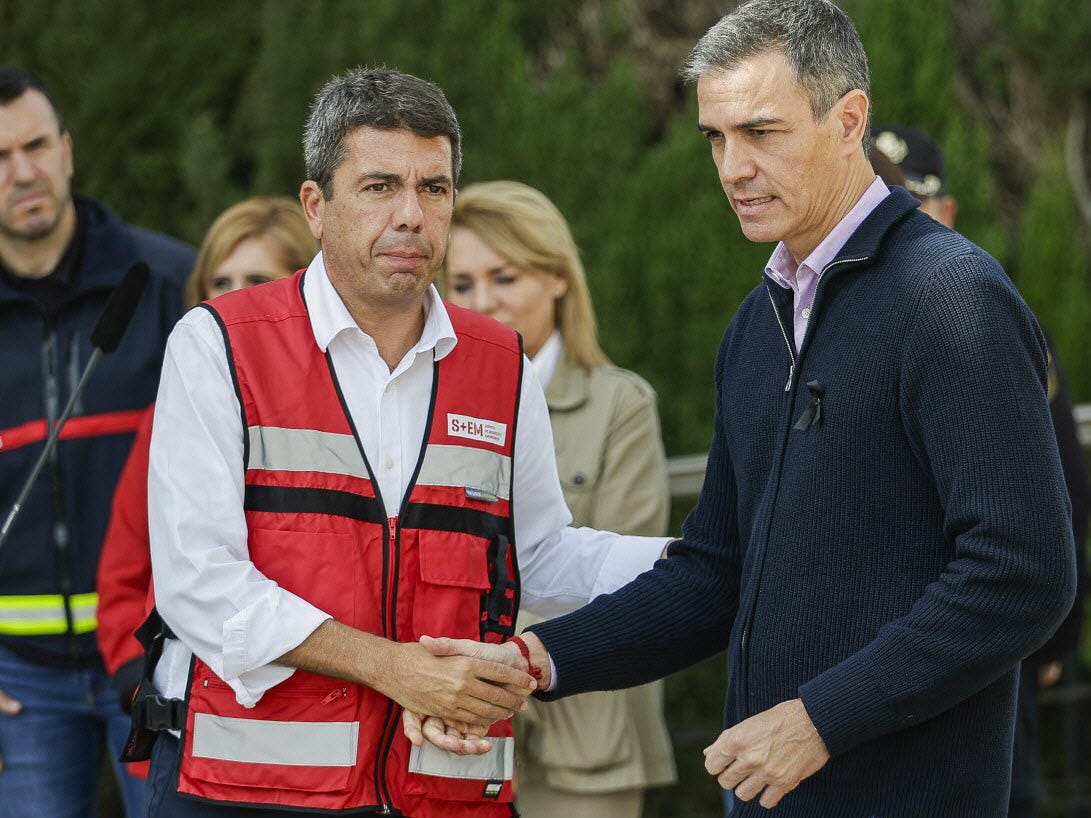
Although help has been sent to the affected places, it was not done from the beginning. Fire trucks, helicopters, and police squads which were sent the day after the floods from other autonomic regions such as Catalonia and Andalucía were forced to return to their origins. Manzón’s government argued that “it was not necessary”. Over 100, 000 people have registered as volunteers so far, but the regional government also sent them back home, defending that, “they had enough for the day.”
“If (Manzón) wants help, he has to ask for it”. Sánchez takes the blame off himself, replying to the criticism of the lack of help received by the affected regions. However, he has the power to decree a state of emergency in the country, which would give his central government control of the situation. If he had done so, he would have been able to send resources to Valencia from the start. “It is not a question of competencies, but of immediate action with all the resources available when citizens are in need”, argues Esther Vera in Catalan Diari Ara.
“We have been abandoned”, says Andreu Salom, mayor of l’Alcúdia —one of the affected cities. Anger and resentment were felt within the affected, which was projected in the mud and insults thrown at King Felipe VI, Queen Letizia, PM Pedro Sánchez, and Valencia’s President Carlos Manzón when they visited one of the worst damaged towns recently.
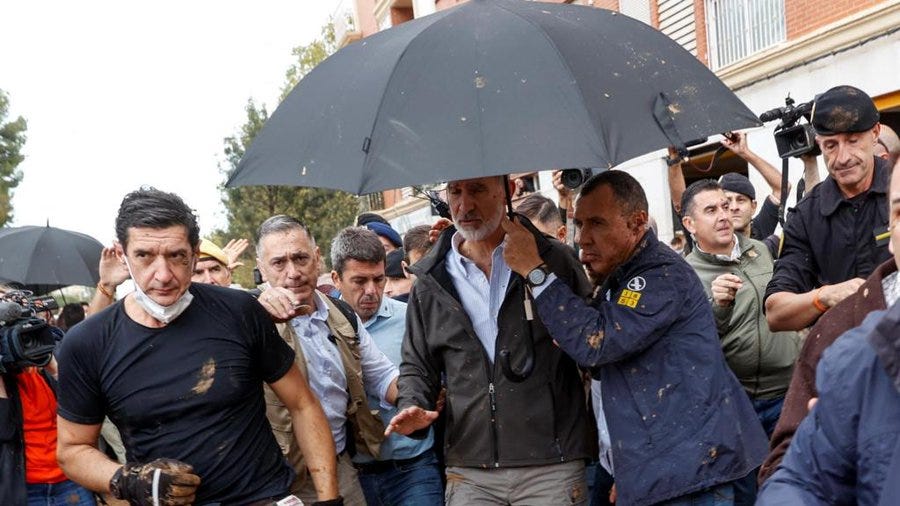
Kindness in chaos
In the middle of this anger and fear, human solidarity has tried to cover what those at the top have failed to do. “Only the people save the people” has been the quote used in social media posts showing the impressive sacrifice of citizens. Holding a bucket and a broom, young and old have tried from the first moment to get rid of the mud in the streets, share food, and help find the ones missing. “The military and police are helping but not as much as we hoped and they are days late,” said an 18-year-old to CNN.
When roads were closed, people reached the towns by walking for hours if needed. Five days after the floods, more than 100,000 volunteers from all over the country gathered in Valencia city centre offering their help. They were distributed in convoys of buses to reach the affected towns. Food drives have been organised in all the autonomous communities, sending food and essential supplies where these are still scarce.
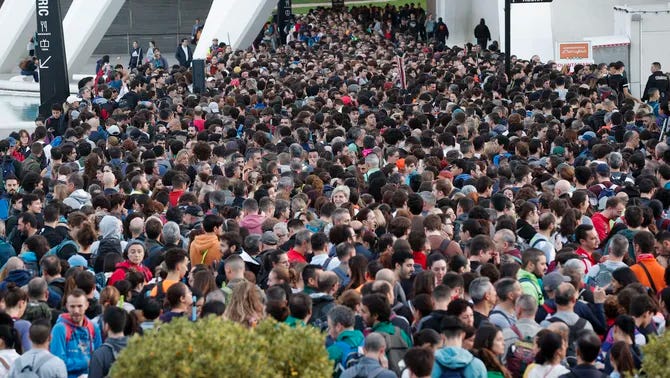
Solidarity is still seen on the streets of Valencia. Locals have opened the door to their homes to volunteers, who come from all around Spain. Arriving only with a shovel and a pair of wellies on hand, they dedicate a day or two to help out cleaning up damaged towns, where mud still is not fully gone. “There is work to do for months,” says Álvaro, age 19, a volunteer from Barcelona who has been helping cleaning a clothes shop in Paiporta. “It all looks surreal, the hardest thing I’ve ever seen,” he explains.
The catastrophe has exposed a failing political class, yet it has shown how amazing things can happen if people join forces. Misery and solidarity coexist in the streets. “I have regained faith in the human being,” Carmen, one of the victims, said.


